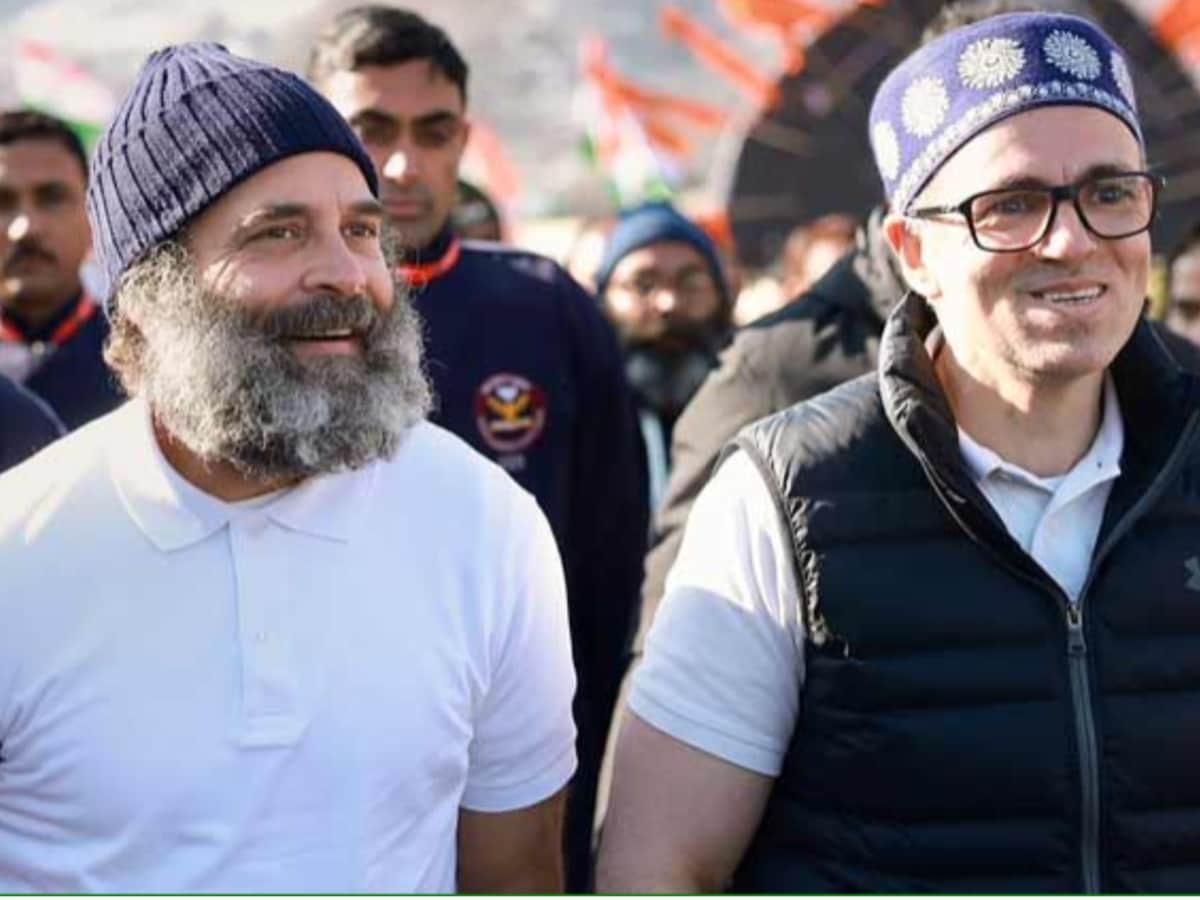 |
|
The INDIA bloc, a coalition of opposition parties in India, is facing internal friction due to differing opinions on the fairness of Electronic Voting Machines (EVMs). This discord is primarily fueled by the Congress party's vocal objections to the EVMs following their losses in the recent Haryana and Maharashtra Assembly elections. Congress has openly questioned the infallibility of the EVMs and has even called for a return to the traditional paper ballot system, a move that has drawn significant criticism from within the alliance itself.
Jammu and Kashmir Chief Minister Omar Abdullah, a prominent member of the INDIA bloc, has publicly rebuked the Congress's stance. In a pointed critique, Abdullah argued that it's inconsistent to celebrate electoral victories achieved using the same EVMs and then to subsequently question their reliability after experiencing electoral setbacks. He highlighted the hypocrisy of accepting EVM results when favorable to the Congress while simultaneously rejecting them when unfavorable. This stark criticism mirrors the BJP's consistent defense of EVMs, a fact noted by reporters, prompting Abdullah's memorable response, ‘God forbid!’ before emphasizing his commitment to principles over partisan loyalty.
Abdullah's comments underscore a deeper rift within the INDIA bloc. While he presented his position as principled, his statements reveal a growing tension between his National Conference party and the Congress. The National Conference, which significantly outperformed Congress during the recent Jammu and Kashmir Assembly elections, privately expresses dissatisfaction with the Congress's perceived lack of effort during the campaign. This internal conflict highlights the challenges facing the opposition alliance as it navigates disagreements on key issues, potentially undermining its overall unity and effectiveness in the lead-up to crucial national elections.
Abdullah's defense of EVMs extends beyond a simple rebuttal of the Congress's position. He presented a broader perspective on electoral processes and the responsibilities of political parties participating in democratic elections. His argument underscores a key principle: parties should either have full faith in the electoral system or choose not to contest elections under that system. This underscores a more fundamental disagreement not just about the reliability of EVMs, but about the responsibilities of political actors within a democratic framework. By dismissing the Congress's concerns as mere excuses for electoral defeat, Abdullah adds another layer of complexity to the ongoing internal tensions within the INDIA bloc.
The controversy surrounding EVMs in India is not new. Concerns about their security and transparency have been raised repeatedly by opposition parties over the years, often amplified following electoral defeats. However, the current situation is particularly sensitive given the close proximity to major elections and the significant role played by the INDIA bloc as a key challenger to the ruling BJP. The internal disagreement regarding EVMs, therefore, presents a significant challenge to the INDIA bloc's efforts to present a united front against the BJP. The public airing of this disagreement could potentially embolden the ruling party and weaken the INDIA bloc's credibility among voters.
Furthermore, Abdullah's stance, while seemingly supportive of the current EVM system, also reveals a more nuanced approach. His example of supporting infrastructure projects like the Central Vista project, often criticized by the opposition, showcases his independent thinking and willingness to challenge prevailing narratives within his own alliance. This points to a possible internal struggle within the INDIA bloc regarding strategy, with some members prioritizing a more united and perhaps less critical approach while others prioritize individual convictions and taking principled stances on specific issues, even if it means diverging from the party line. This internal diversity, while potentially a source of strength in terms of representing a wider range of perspectives, might also prove to be a significant weakness as the alliance faces greater challenges.
The future of the INDIA bloc hinges on its ability to resolve these internal conflicts effectively. The disagreement over EVMs represents a microcosm of larger ideological and strategic differences that could ultimately determine its success or failure in challenging the BJP's dominance. The coming months will be crucial in assessing whether the INDIA bloc can overcome these challenges and present a unified and coherent alternative to the ruling party. Failure to do so could significantly impact the upcoming elections and the overall political landscape of India.
Source: Rift In INDIA Bloc Widens As Omar Abdullah Tells Ally Congress To Stop Whining About EVMs
